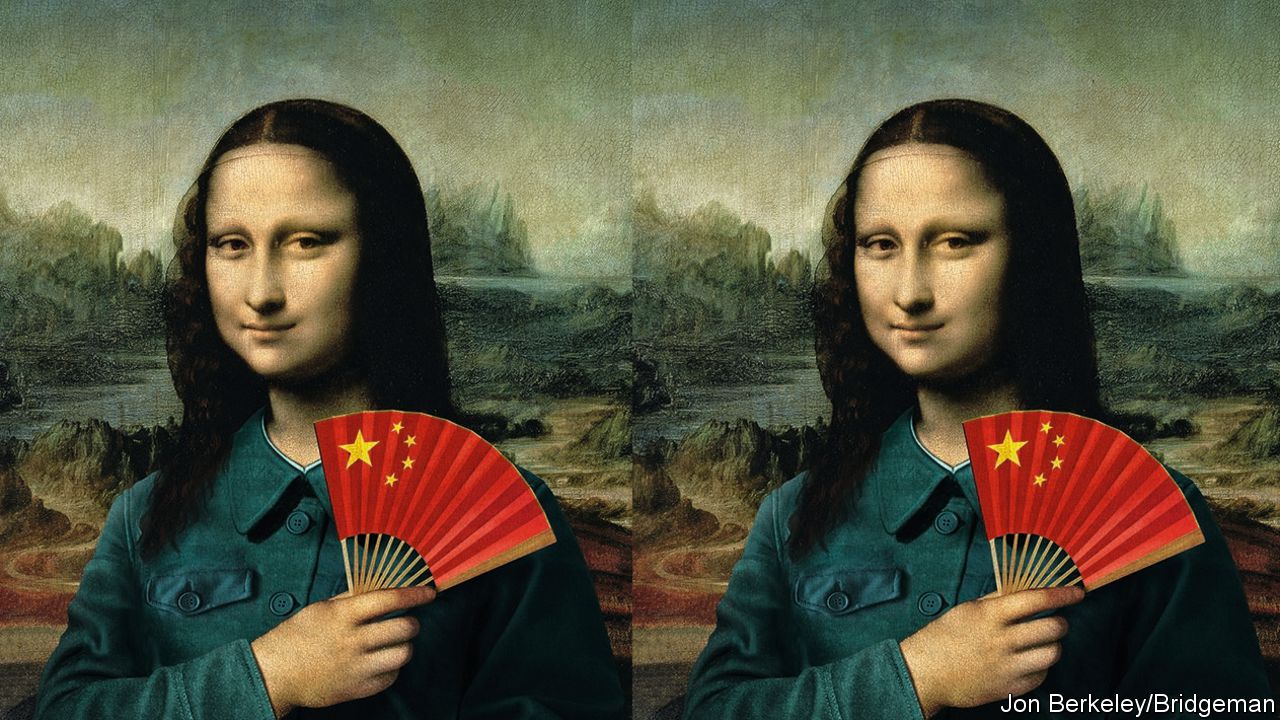EUROPE has caught China’s eye. Chinese investments there have soared, to nearly €36bn ($40bn) in 2016—almost double the previous years’ total. Chinese FDI fell in 2017, but the share spent in Europe rose from a fifth to a quarter. For the most part, this money is welcome. Europe’s trading relationship with China has made both sides richer.
However, China is also using its financial muscle to buy political influence (see Briefing). The Czech president, Milos Zeman, wants his country to be China’s “unsinkable aircraft-carrier” in Europe. Last year Greece stopped the European Union from criticising China’s human-rights record at a UN forum. Hungary and Greece prevented the EU from backing a court ruling against China’s expansive territorial claims in the South China Sea. Faced with such behaviour, it is only prudent for Europeans to be nervous.
And not only Europeans. The terms on which the emerging undemocratic superpower invests in the outside world are of interest to all countries—particularly if other things, such as foreign policy, may be affected. Americans, increasingly consumed by fears that China poses a commercial and military threat, should be mindful of competition for the loyalties of its oldest ally. For everyone’s sake, it matters that Europeans gauge their welcome to China wisely. Just now, they do not.
A sense of perspective
Many of China’s plans in Europe are just what you would expect of a rising economy. Some investments are private, profit-seeking and harmless. Acquiring technology by buying innovative firms, including in Germany’s Mittelstand, is reasonable, too, so long as deals are scrutinised for national-security risks. There are also things that China, unlike Russia, does not want, such as to undermine the EU or sow chaos by furtively supporting populist, xenophobic parties. It would rather Europe remained stable and open for business. On issues such as climate change and trade, China has acted more responsibly than the Trump administration, seeking to uphold global accords rather than chuck grenades at them.
Some Europeans take this to suggest that China is a useful counterweight to an unpredictable Uncle Sam. That is misguided. Europe has far more in common with America than China, however much Europeans may dislike the occupant of the White House. Moreover, China has used the EU’s need for unanimity in many of its decisions to pick off one or two member states in order to block statements or actions of which it disapproves—as with human rights.
Other Europeans seize on such examples to jump to the opposite conclusion. They fear that Chinese lucre will one day undermine Europe’s military alliance with the United States. Fortunately, that is a long way off, as the French and British navies have shown by joining America and Japan to challenge China in the South China Sea (see article). Until China itself becomes a democracy, of which there is no sign, Europe will surely remain closer to its traditional allies.
Europe thus needs to take a path that avoids the extremes of naivety and hostility. It should avoid mimicking Chinese protectionism. It might sound “fair” to subject Chinese firms in Europe to the restrictions European firms face in China, but it would be a mistake. The permeability of European societies and economies to ideas and influences is a strength.
But such openness also makes them vulnerable. Hence, governments should vet investments case by case. Montenegro should not have allowed its debts to China to become so perilously vast. Hungary and Poland should have looked harder at certain Chinese infrastructure projects that offer poor value for money or were never properly completed.
Europeans could do more to substantiate their talk of “reciprocity”, or the mantra that the EU and China should treat each other as each wishes to be treated. They could, for example, introduce new instruments to make it clearer who is buying stakes in firms and thus whether they are doing so fairly. They should also increase funding for impartial China research. Transparency should be demanded from political parties, universities, think-tanks and lobbyists. Sometimes Chinese cash buys unsubtle happy talk. More often, it leads to self-censorship and punch-pulling from even prestigious academies.
And Europe should aim to speak as one. None of its states alone can face down China but, acting together, they could do so for decades to come. The EU could, for example, use qualified-majority voting (QMV) rather than unanimous votes on some subjects sensitive to China, such as human rights. This would not work for everything—most EU nations would balk at giving Brussels a veto over how they deploy their military forces. But QMV would make it harder for China to paralyse the EU by picking off one small member at a time. The EU could also co-ordinate investment-screening processes by member states. And it could take better care of those southern and eastern countries particularly vulnerable to China’s influence and provide alternative sources of investment for the projects they deem important. A little more intra-European solidarity would go a long way.
What money can’t buy
America has a role to play, too. Ideally the Trump administration would stop treating Europeans as free-riders on American power who deserve a good kicking. On trade, especially, the EU is a powerful potential ally in getting China to abide by global norms. America should also work more closely with European governments to set up common standards of transparency, graft-busting and the prevention of influence-peddling—
which would make it harder for China to impose its own rules on small countries. At a time when standards for IT and artificial intelligence risk splitting into a Chinese camp and an American one, Europe can help find a middle path.
As China rises, the benefits for the world of an independent, open and free Europe will only increase. Conversely, a Europe weakened and divided by the world’s most powerful authoritarian regime would exacerbate problems far beyond the EU’s borders. Europe must not let that happen.

No comments:
Post a Comment